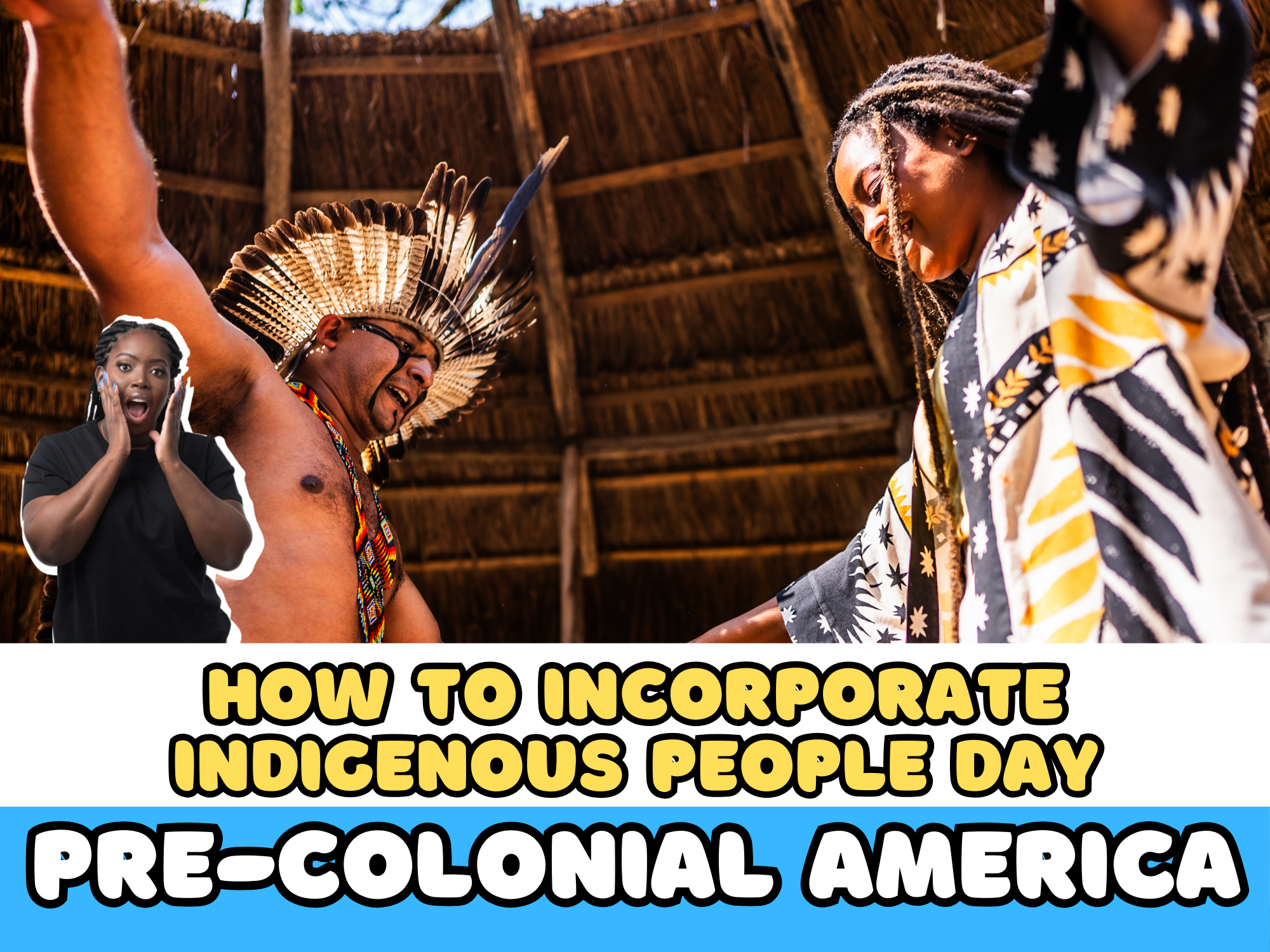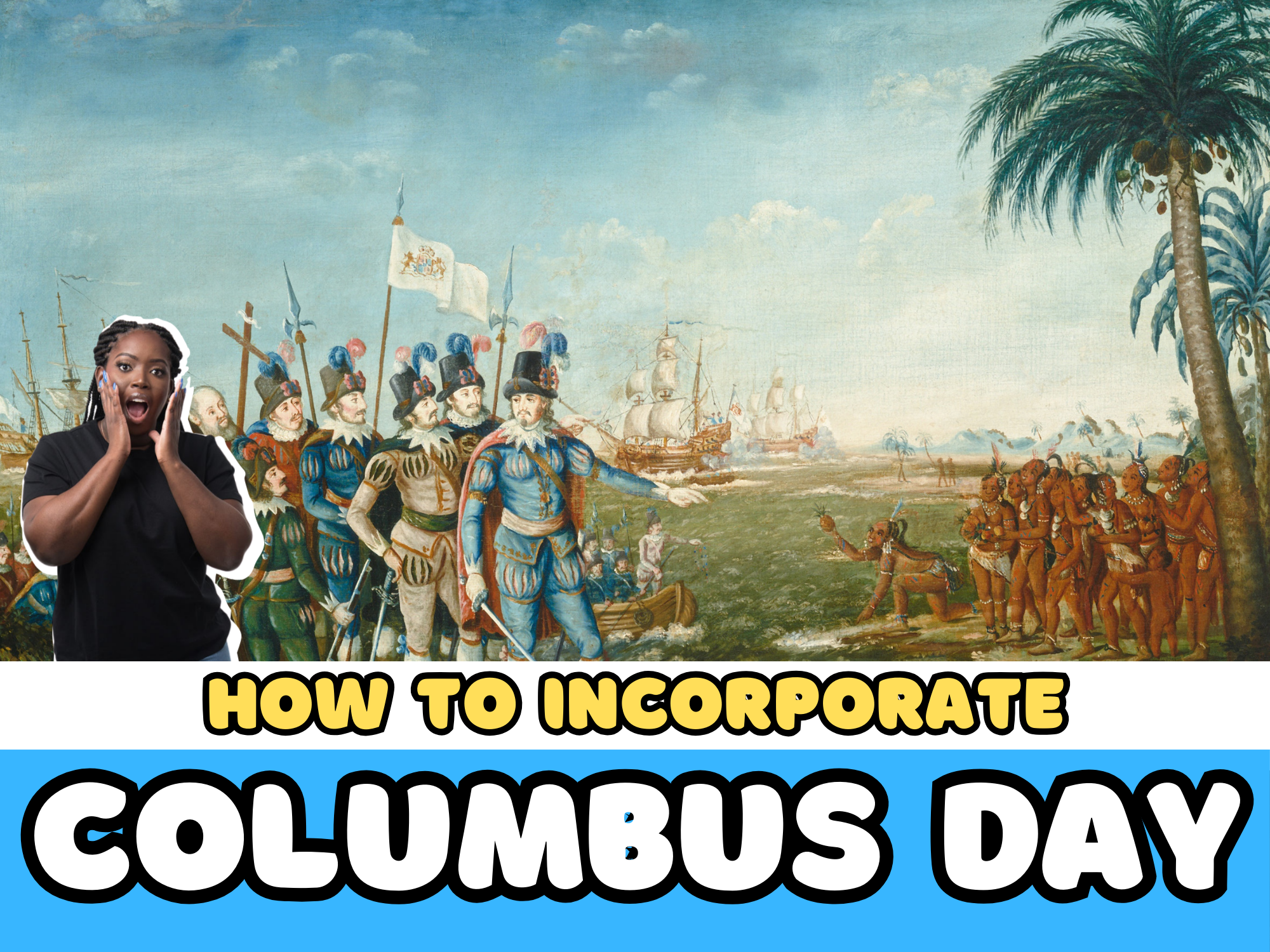My Nerdy, Eye-Opening, AI-Packed Weekend at TSU
In late September, I packed my suitcase and flew down to Tennessee State University for the Artificial Intelligence (AI) Impact and Effectiveness for Teaching and Learning conference at the SMART AI for All Applied Research Center in downtown Nashville. Whew—that’s a mouthful, but let me tell you, it was so worth it.
Why Teaching the Hamas-Israel Conflict in Your Social Studies Classroom Matters
Every year, our students come into class with questions shaped by the world around them—news alerts, TikTok clips, family conversations, and headlines they don’t fully understand. As social studies teachers, we have a responsibility not to shy away from difficult topics, but to meet them with clarity, context, and care.
One of the most complex and pressing issues of our time is the ongoing conflict between Hamas and Israel. Even if your curriculum doesn’t explicitly include it, the conflict is highly relevant to core themes we do teach: power, borders, resistance, identity, governance, and human rights.
Bringing Pre-Colonial Native American Cultures to Life in Middle School Social Studies
Featuring a 5-Day Mini-Unit and Free Native Voices Museum Exhibit PBA Download
How lucky am I to be teaching about Native American cultures around the same time as Indigenous Peoples Day? In my 7th grade social studies class, this isn’t just a coincidence—it’s an opportunity. Right when the calendar reminds us to reflect on Indigenous history and legacy, my students are diving deep into a mini-unit on Geography and Pre-Colonial Native American Cultures.
After completing a 6-lesson mini-unit on the theories of human migration into the Americas, where students explore the Bering Land Bridge Theory, Coastal Migration Theory, and Solutrean Hypothesis, we naturally transition into studying the descendants of those early Americans. What follows is a highly engaging, standards-aligned 5-day unit where students explore how geography and climate shaped Native American cultures across North America—culminating in one of my favorite project-based assessments.
Let me walk you through each day of this mini-unit and show you how I tie content to creativity while keeping students engaged and reflective.
Bring Native American Studies to Life with This Free Museum Exhibit Project
Engage, assess, and inspire with a hands-on social studies performance task
Looking for a meaningful way to wrap up your Native American unit? Want to assess student learning in a way that goes beyond a quiz or worksheet?
I’ve got the perfect solution: the Native Voices Museum Exhibit — a FREE performance-based assessment that helps middle schoolers synthesize their learning about geography and pre-colonial Native American cultures in a creative, standards-aligned way.
And if you're ready for a fully done-for-you experience, there's also a complete 5-Day Mini-Unit available on Teachers Pay Teachers that integrates the project. Whether you want a free tool to enhance your teaching or you're ready to grab a comprehensive unit, I’ve got you covered.
Transform Your Native American Unit with This Free Museum Exhibit Project
If you're looking for a way to elevate your unit on Native American cultures—without losing valuable class time—you’re going to love this ready-to-use resource. I created the Native Voices Museum Exhibit project as the culminating assessment for my 7th grade mini-unit on Geography and Pre-Colonial Native American Cultures, and now I’m sharing it with you—for free!
How I Sequence My Unit on Indigenous Peoples Around Indigenous Peoples’ Day
If you're looking for a way to elevate your unit on Native American cultures—without losing valuable class time—you’re going to love this ready-to-use resource. I created the Native Voices Museum Exhibit project as the culminating assessment for my 7th grade mini-unit on Geography and Pre-Colonial Native American Cultures, and now I’m sharing it with you—for free!
How to Incorporate Columbus Day in Your Middle School Social Studies Classroom Without Derailing Your Curriculum
As a middle school social studies teacher, it can be hard to strike a balance between sticking to your curriculum map and honoring key moments or holidays like Columbus Day. If you’ve ever thought, “I should do something for this,” only to realize it’s the morning of—you’re not alone. The key to making space for these moments is planning ahead and keeping it efficient and purposeful.
Is Celebrating Columbus Day Still Appropriate in Your Middle School Social Studies Classroom?
Every October, social studies teachers across the country face the same question: Should I still teach about Columbus Day? The answer isn’t a simple yes or no—it’s about how we teach it. And in middle school, the answer is a thoughtful yes, because students are finally ready to engage with the full picture of Christopher Columbus's legacy.
Back-to-School Prep: Master Classroom Organization with Our Free Checklist!
A well-thought-out classroom setup does more than just look good—it enhances learning, supports behavioral management, and reduces unnecessary stress for both students and teachers. An organized space sets the tone for the students that this is a place where they can feel secure, respected, and ready to learn.
Teaching 9/11 in Middle School Social Studies: An Integrated Approach
September 11th is a significant date in modern American history, marked by profound tragedy and heroism. As such, it's essential to approach this topic sensitively in the middle school social studies classroom. Here’s how educators can incorporate the events of 9/11 into their existing curriculum without disrupting the flow of planned lessons.
Celebrating Labor Day: Seamlessly Integrating It Into Your Middle School Social Studies Curriculum
Labor Day isn't just a welcome day off from school—it's a pivotal opportunity to engage middle school students in the rich history of labor movements and the continuing issues related to workers' rights. Here’s how you can incorporate Labor Day into your social studies curriculum without derailing your planned lessons.
Start the Year Strong: A Step-by-Step Guide to Organizing Your Middle School Classroom
The beginning of the school year is the perfect time to establish strong systems, clear routines, and a welcoming environment. Before diving into curriculum or assessments, take time to organize your classroom in a way that supports student learning and reduces stress—for both you and your students.
Here’s a step-by-step guide to the most important systems you should set up now—before the first bell rings.
10 Essential Items for a Middle School Social Studies Classroom
As a seasoned middle school social studies teacher with nearly a decade of experience, I've refined my classroom setup to include items that streamline my teaching process and enhance student engagement. Here’s a list of the top 10 essentials that I find invaluable in my daily teaching routine
5 Creative Ways to Utilize Vocabulary Cards in Your Social Studies Classroom
Vocabulary is the cornerstone of understanding in any subject, especially in social studies where students encounter diverse terms that describe complex concepts and historical contexts. Utilizing vocabulary cards effectively can enhance students’ retention and understanding of these terms. Here are five innovative ways to integrate vocabulary cards into your social studies lessons, ensuring your students are not only engaged but also building a strong vocabulary foundation.
Quick-Start Vocabulary Games for Dynamic Entry Activities
Engaging students at the start of a social studies class can spark enthusiasm and enhance learning throughout the lesson. Vocabulary games are fantastic tools for this purpose, especially when time is of the essence. Here are five vocabulary games that you can set up and execute in under 10 minutes, perfect for brief yet effective entry activities.
Quick Setup for Vocabulary Games: Engage Your Students in Under 10 Minutes
Kicking off your class with an engaging entry activity can set the tone for a lively and productive lesson. Vocabulary games are especially effective in the social studies classroom, where a robust understanding of terminology is crucial. Here’s how to quickly set up five popular vocabulary games that can be completed in under 10 minutes, perfect for starting your class with a burst of energy and learning.
Enhancing Vocabulary Retention with Engaging Games in 6th Grade Social Studies
In the diverse world of social studies, vocabulary forms the backbone of comprehension and engagement. Incorporating games into vocabulary lessons not only boosts engagement but also enhances retention, making learning both effective and enjoyable for 6th graders. Here are ten engaging vocabulary games tailored to enrich your social studies curriculum.
The Power of Vocabulary Games in the Social Studies Classroom
In the diverse and content-rich curriculum of social studies, vocabulary serves as a crucial bridge between students and complex concepts about history, geography, and cultures. Employing vocabulary games in the classroom is more than just a fun activity; it's a strategic approach to enhance learning, retention, and student engagement.
Structuring Success: Get Our Free Curriculum Map Template Today
Effective curriculum planning is the cornerstone of educational success. A well-designed curriculum map ensures that instruction is systematic, covers all required standards, and meets the diverse needs of students. Our free curriculum map template is crafted to help educators streamline their planning process and foster a coherent educational experience. Let’s delve into the essential components of this template.
How to Create a Curriculum Map: A Step-by-Step Guide for Social Studies Teachers
Crafting a curriculum map is a strategic approach to planning your academic year. It aligns educational content with standards, organizes teaching sequences, and ensures comprehensive coverage of necessary material. Follow this step-by-step guide using our free curriculum map template to effectively lay out your curriculum for the upcoming school year.




















